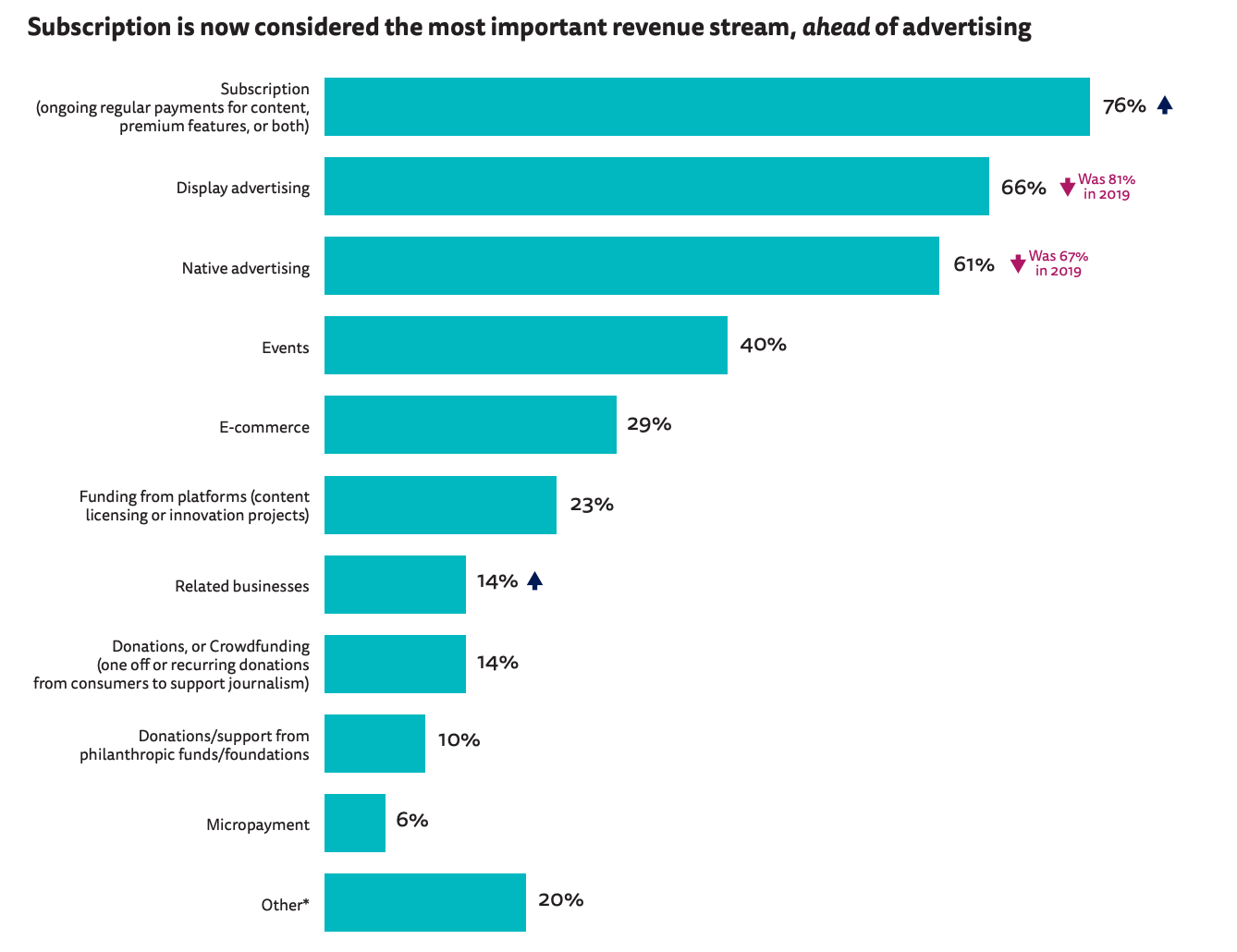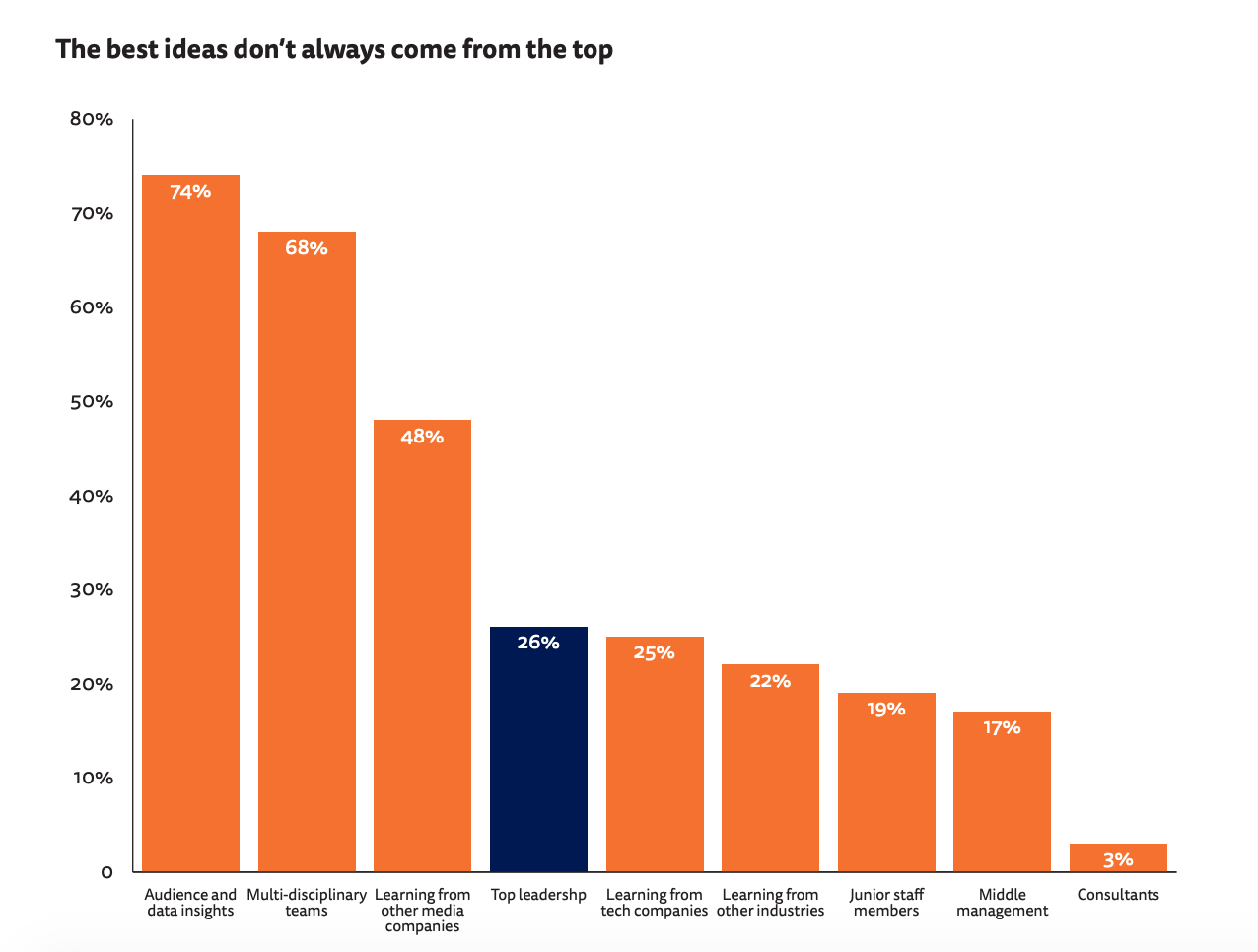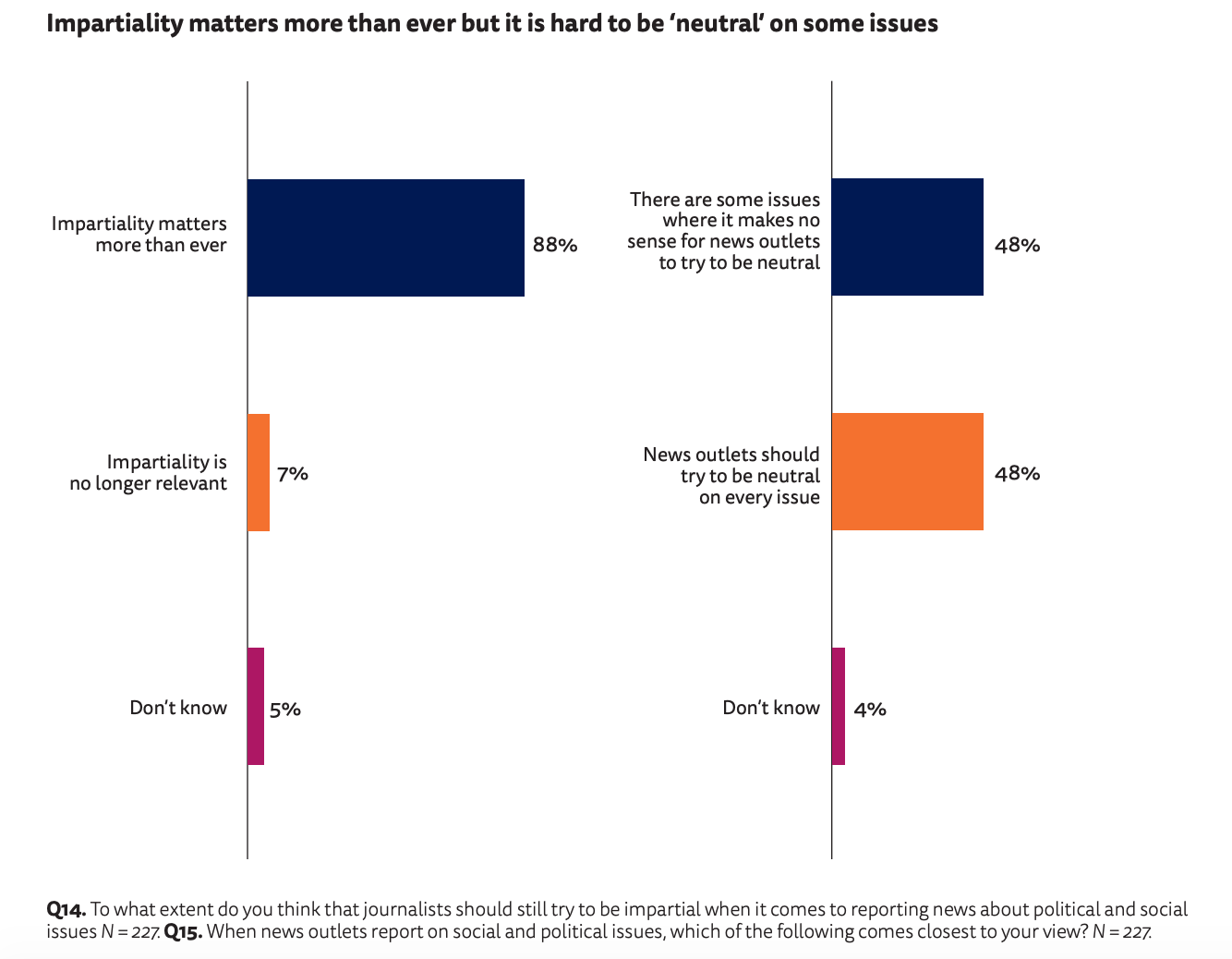Nieman Lab isn’t the only one in the predictions business. (If you missed it, here’s what some of the best and brightest in journalism told us to expect in 2021.) The Reuters Institute for the Study of Journalism has released a lengthy report after surveying 234 media leaders in 43 countries about the next 12 months in journalism.
Roughly a quarter of the respondents are based in the U.K. and typical job titles included editor-in-chief, executive editor, CEO, managing director, head of digital, director of product, and head of innovation.
Here are a few of the findings that stood out:
A little more than three quarters of publishers interviewed said Covid-19 accelerated their plans for a digital transition. The report’s author — senior research associate Nic Newman — noted subscriptions and e-commerce emerged as “the two future-facing business models … supercharged by the pandemic.”
The industry leaders were divided on whether a subscription model would work for most publications. 51 percent reported they felt optimistic but another 41 percent said relying on reader revenue would only ever work for “a select few” outlets. Still, when asked about their own models, respondents emphasized subscriptions and de-emphasized advertising compared to 2018, the last time the Reuters Institute asked the question. The answers also demonstrated how important revenue stream diversification has become. On average, publishers cited four different revenue streams as being “important” or “very important” to them.

The digital transition doesn’t end with business models. After a year of Zoom and WFH, newsroom leaders told the researchers they expect to land on a hybrid in-person and remote model for employees in the future.
“With little money available for big new investments, companies are likely to focus on improvements to existing products and brands (70%) rather than developing ‘moonshots’ or creating entirely new products (28%),” according to the report. “Many of our respondents said that the pandemic hadn’t changed their view of existing strategies — but they have needed to move faster because of it.”
Senior news executives say the best new ideas are more likely to come from audience and data insights, multi-disciplinary teams, and other media companies than from their own leadership ranks.

The year 2020 saw a number of newsrooms erupt into debates about representation and the risks of bothsidesism or value-neutral reporting on issues like race and democracy. News executives overwhelmingly agreed that “impartiality matters more than ever” but a little less than half — 48 percent — also said there are some issues where it is “not appropriate” for journalists to take a neutral position.

The report includes some of the questions that publishers weighing decisions involving impartiality and declining trust in democratic institutions will be asking themselves in 2021:
Does a traditional approach of dispassionately airing all the arguments and leaving it up to people to make their own judgement still stand? Or does this risk giving undue weight to extreme positions and help amplify lies? Should journalists take a clear moral stand in their reporting of, for example, the killing of George Floyd, the ‘climate emergency’, or the attempted subverting of a presidential election? Should journalists express their feelings openly rather than keep up a pretence of neutrality? Or does it depend on different media traditions, formats, and expectations?
Although the number of publishers agreeing that neutrality is not appropriate on some issues has risen, some media companies, including the BBC, have promised to “double down” on strict interpretations of a journalist’s obligation to be impartial in 2021. The report notes that the BBC’s new Director General, Tim Davie, has vowed to crack down on staff expressing opinions on social media and said he was willing to fire reporters to make his point. In one on-air incident from 2020, BBC Two journalist Emily Maitlis was found to have breached “the required standards of due impartiality” when describing video of Boris Johnson aide Dominic Cummings flouting Covid-19 lockdown rules. The standards are likely to be tested again in the new year.
The number of publishers worried that government help would wind up hurting the industry fell from 25 percent to 17 percent. “This change in sentiment could reflect confidence that governments are finally prepared to take bolder action to help publishers, as well as rising concern about the impact on journalism of unchecked conspiracy theories and other forms of misinformation,” the report guessed.
The report has some ideas, starting with the potential for a newsletter backlash that could affect traditional publishers as well as journalists who’ve made the jump to independent platforms like Substack:
This may be the year when consumers struggle to get through the large number of emails they’ve signed up to during the lockdown. At the same time, some writers will struggle with the pressure of having to come up with the goods day after day. We may see some high-profile defections back to mainstream media, where there is potentially more variety and more editing and legal support. Platforms like Substack may also struggle to show that they can showcase and reward new and diverse voices alongside proven writers on a narrow range of subjects.
In audio — a format that “has gone strength to strength,” despite the pandemic eliminating the morning commute, once the most popular time of day for listening to podcasts — the report looked forward to a shift to paid or paywalled podcasts as well as publishers battles over top talent. The new year is also expected to bring more audio-centric experiments, including video podcasts and new products from The New York Times, which is expected to put their new audio acquisitions (the long-form journalism start-up Audm and Serial Productions) to good use.
You can read the full report from the Reuters Institute for the Study of Journalism here or take a peek at last year’s survey, for comparison.